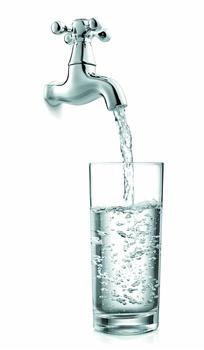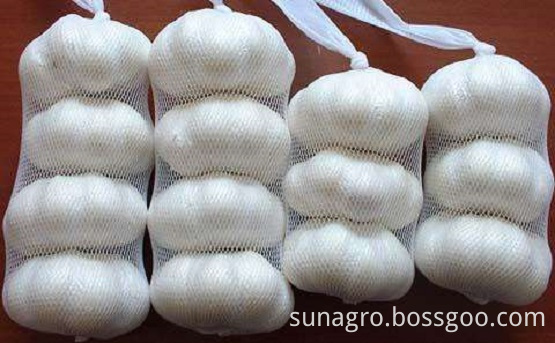 The Beijing Water Group introduced yesterday that on the 15th of this month, water quality monitoring information will be announced on the group's portal website for public inquiries. The 59 monitoring points added to the city's water supply network and user terminals will also be launched this month. By then, the total number of monitoring sites will reach 302, mainly in crowded residential areas.
The Beijing Water Group introduced yesterday that on the 15th of this month, water quality monitoring information will be announced on the group's portal website for public inquiries. The 59 monitoring points added to the city's water supply network and user terminals will also be launched this month. By then, the total number of monitoring sites will reach 302, mainly in crowded residential areas. According to Liang Li, spokesperson of the Beijing Water Group, since the 15th of this month, the water supply and water quality information will be announced to the public for the first time through the group portal, covering the entire water supply scope of the group, namely the urban area and Nankou, Mentougou, Huairou, Miyun, The water supply areas of Yanqing, Fangshan, Daxing, Tongzhou and Changxin shops.
Liang Li introduced that in the future, water quality monitoring results will be announced in the first quarter. Citizens will open the water quality information disclosure column on the homepage of the website to view 42 general indicators related to water quality.
In the fourth quarter of last year's test results, the reporter saw that the “Health Hygiene Standards for Drinking Water†and the test results were listed one by one to facilitate comparison. The indicators included microbiological indicators such as the total number of colonies, lead, mercury, and nitric acid. Salts and other toxicological indicators, color, turbidity, smell and taste and other sensory indicators, and radioactive and disinfectant indicators.
According to the engineers of the Water Quality Monitoring Center, all water plants monitor the whole project on a monthly basis, including pesticides containing organic phosphorus and organic chlorine, disinfection by-products such as chloroform, plasticizers and other harmful substances that affect biological reproduction and endocrine secretion. The display content is much lower than the standard value, which is about one percent of the standard value, and China's standards are not bad compared with European countries and other countries.
How is the quality of tap water in Beijing? Increasingly stringent water quality standards
“The tap water produced by our Water Group is in line with the country’s 106 water quality standards and is in line with national standards. It is safe, and it is safe for the public to drink.†Liang Li, spokesman for the Beijing Water Group, said yesterday.
Lin Aiwu, director of the Beijing Water Group Water Quality Monitoring Center, said that despite Beijing’s diversified sources of water and complicated water quality in these years, drinking water standards are unique, regardless of source water quality, and the new national standards in 2006 are more stringent than before. As the number of standards has increased, the factory water can be said to be safer than before.
Is the nitrate content high? Always follow the highest standards of control
Lin Aiwu introduced that the national standard specifically mentions that nitrate content in groundwater sources can be relaxed to 20 mg/L, because nitrate in groundwater is much higher than surface water, and nearly 40% of Beijing's water supply comes from groundwater sources.
"Although there is relaxation, we strictly control it by 10mg/L." Lin Aiwu said that water quality monitoring results in the fourth quarter of last year showed that the highest value of nitrate in tap water in Beijing was 9.7mg/L, and the lowest value was only 0.7mg/L.
How to do too much water alkali? Water alkali meets standards without affecting health
Some citizens have noticed that the water in the tap water is large, and Lin Aiwu introduced that this is an indicator of the hardness of water, which is related to the structure of underground water. Because most of underground Beijing is a carbonate structure, there will be precipitation of calcium and magnesium after boiling. The reason why the water plant is to mix groundwater and surface water is to reduce the hardness.
Lin Aiwu introduced that the current hardness index of tap water in Beijing is controlled below 380mg/L, lower than the national standard of 450mg/L, and meets drinking water standards. "Water and alkali, more minerals, only affect the taste of the people drinking, does not affect the health of the body, and this mineral is beneficial to the human body," Liang Li introduced, due to the shortage of water resources in Beijing, the groundwater source decreased year by year, underground The minerals thus dissolve more in the water.
In contrast, surface water hardness is about 200mg/L, which is much lower than groundwater. In recent years, Beijing has also diverted water from the four reservoirs of Hebei Huangbizhuang Reservoir, Gangnan Reservoir, Wangkuai Reservoir and Angezhuang Reservoir. At present, about 60% of the total water supply comes from surface water.
Product classification of garlic;Our company is located in the hometown of garlic in China -- jinxiang county, jining city, shandong province. Our company has rich export experience. We have our own factory and farmland.We supply ordinary white garlic, Peeled Garlic, packed garlic, Pure White Garlic, packaged garlic storage garlic supplier/factory, wholesale high quality organic garlic research and development and manufacturing products professional manufacturers, we have perfect after-sales service and technical support.Looking forward to your cooperation!

White Garlic,Fresh Garlic,Nature Garlic,Quality Garlic
Jining Sunagro Trade Co., Ltd. , https://www.sunagro-food.com